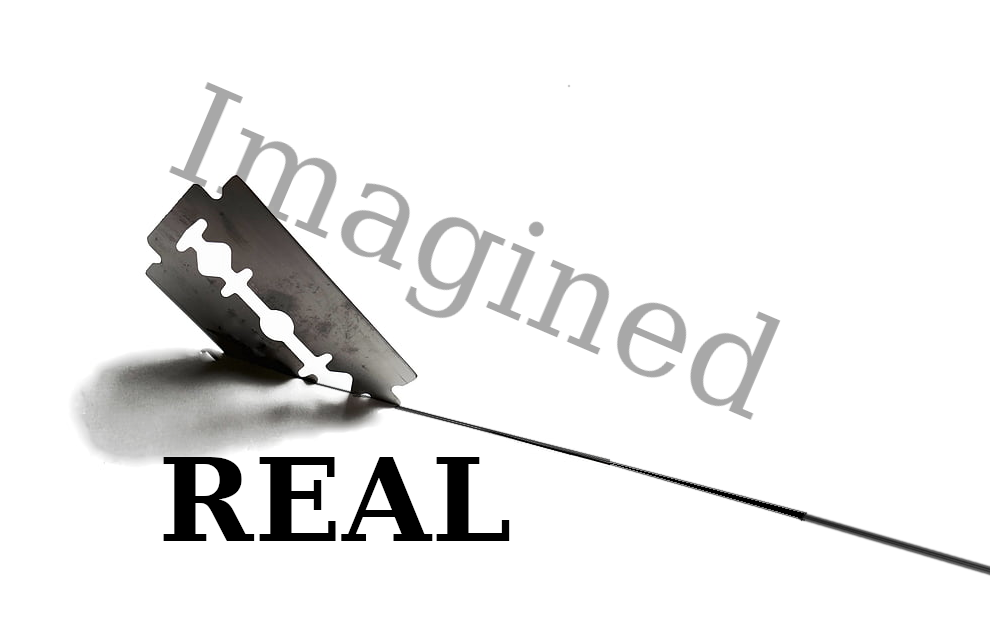Meditative Inquiry via Occam's Razor
Inquiring into our bare consciousness, applying Occam's Razor

Occam's Razor presents a simple rule to discard the unnecessary when theorizing. It is a form of intellectual minimalism and while not infallible, the rule helps keep theories more rational and simple based only on reliable information at hand and the most likely outcomes based on it.
Often it is simplified to:
"When there are multiple explanations, chose the simplest one"
or
"The simplest explanation is most likely correct"
However, here we will not apply the Razor to come up with any explanation about anything. We just use the same mindset of discarding and simplifying to help us in Self-Inquiry, in a more meditative sense. What is the simplest experience of our immediate reality we can possibly have without adding anything extra to it? When we apply the approach to our own everyday conscious experience in a relaxed and lucid way (Samatha/Vipassanā style), a curious thing happens... lets try it.
For full effect, begin in a relaxed, open and mindful state
Right here, and right now, discard all mind-activity that is unnecessary, including discarding the sense of a concrete notion of "self".
Don't worry, "you" can always be re-imagined later.
An immediate sense of lightness and clarity ensues. Everything continues to function naturally even without a conceptually imagined self, does it not?
At the same time, the unnecessary sense of there actually being a "world" in which a self exists and events/objects occur, gets dropped. All concrete objects, events, and reference points go away naturally. A spacious awareness persists and brightens. There is natural rest in that awareness. Complete satisfaction in the moment.
Can the remaining spacious awareness that naturally rests, be ceased? Can anything more be cut away or denied?
Thoughts and distraction might come back, but again they can be cut, and the same awareness remains. The experience of which does not even depend on any concept of awareness, so that very concept of "there is awareness" can be dropped.
A particular thought may arise along the lines of: "But once the conceptual thoughts and sense of self come back, then the awareness is lost. Once the thoughts cease, then awareness is gained again".
But apply the Razor here once again, in a more experiential way. Keep discerning whether this is really what is experienced or whether this is just another thought based on conditioning and conventions, that can be dropped. Then cut away that thought and rest again in whatever remains. When that particular thought eventually begins to loosen its grip and be cut away, a truer thought that "awareness is always there in the background even when lost in thought" might replace it. But note that it too is another thought to be discarded (even if it is a more accurate stepping stone).
What else can be cut? Or in another way: what else has a tendency to arise unnecessarily?
Check again. There can be a subtle concept of: "awareness and the contents of awareness... that awareness is always the same but the contents of it still change". But how true is this? can this idea be discarded as well? It can. There is no need to draw extra conceptual lines or labels, apparent awareness and its apparent contents are naturally unified.
Truly what more can be cut? Notice that any explanations about it can always be cut away but the experience itself cannot,
Keep up gentle inquiry, observing and shaving away subtle concepts that arise. What's left is simply to be rested in, to be experienced in complete satisfaction...
🙏

